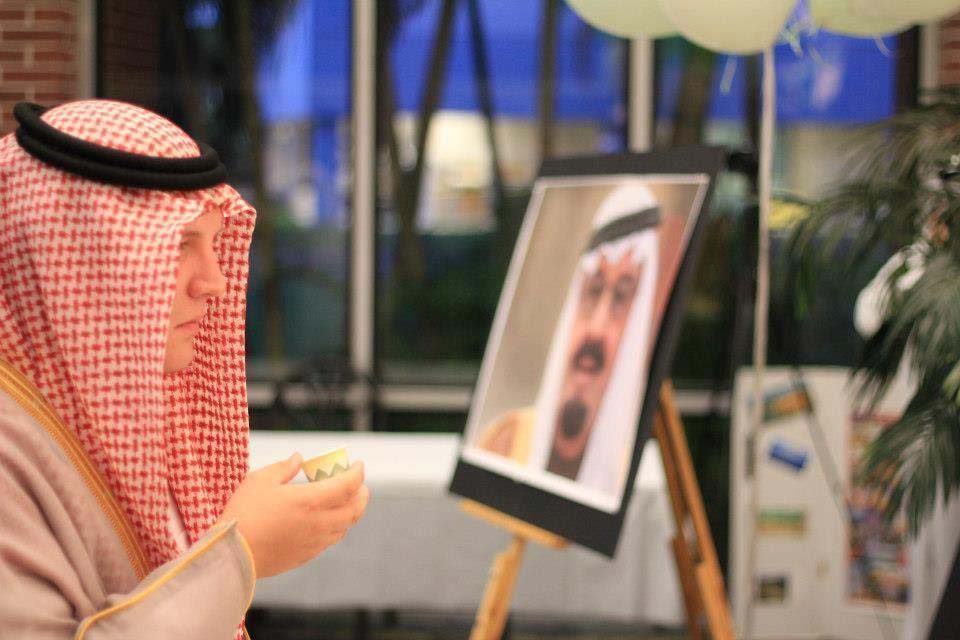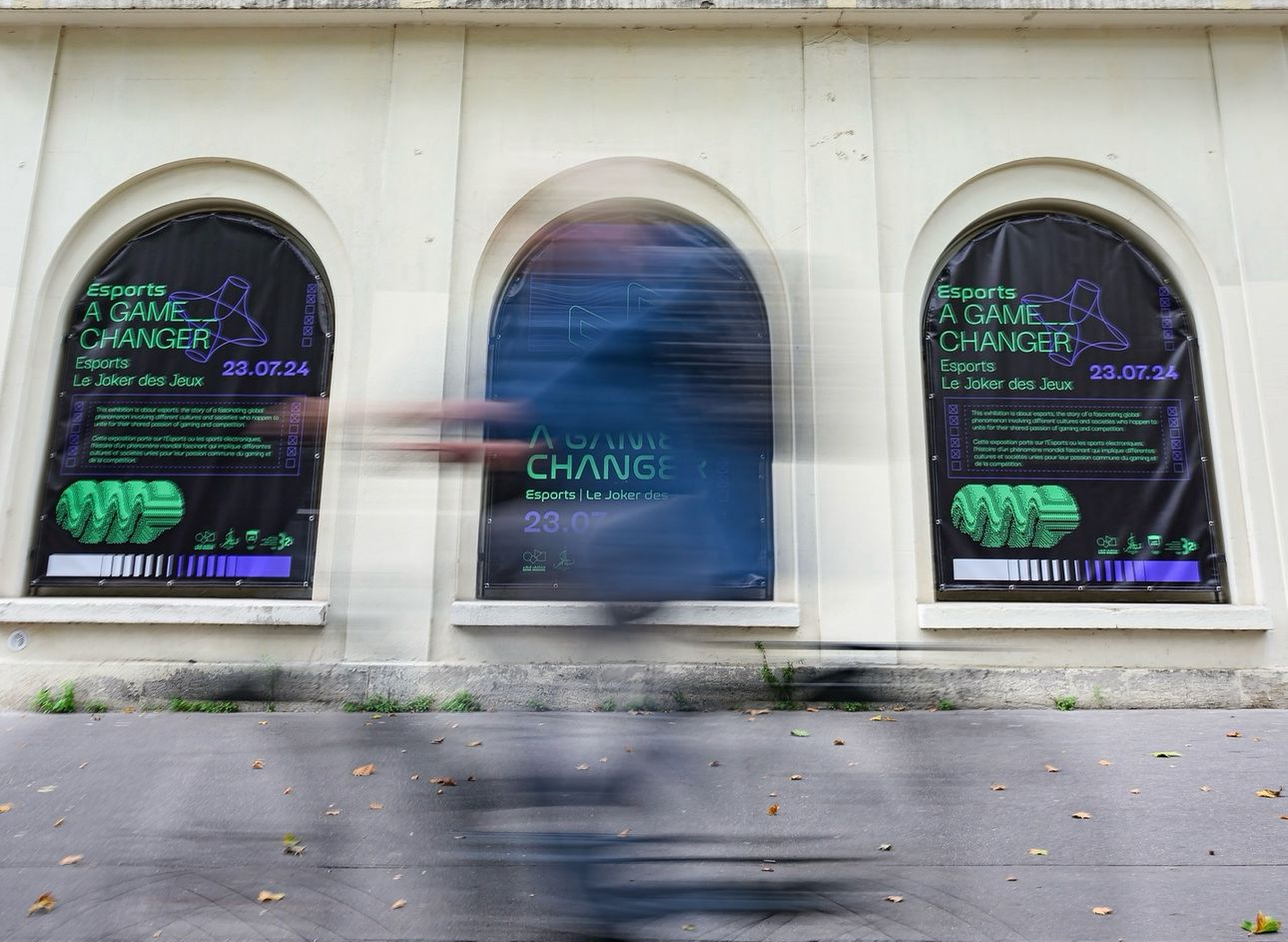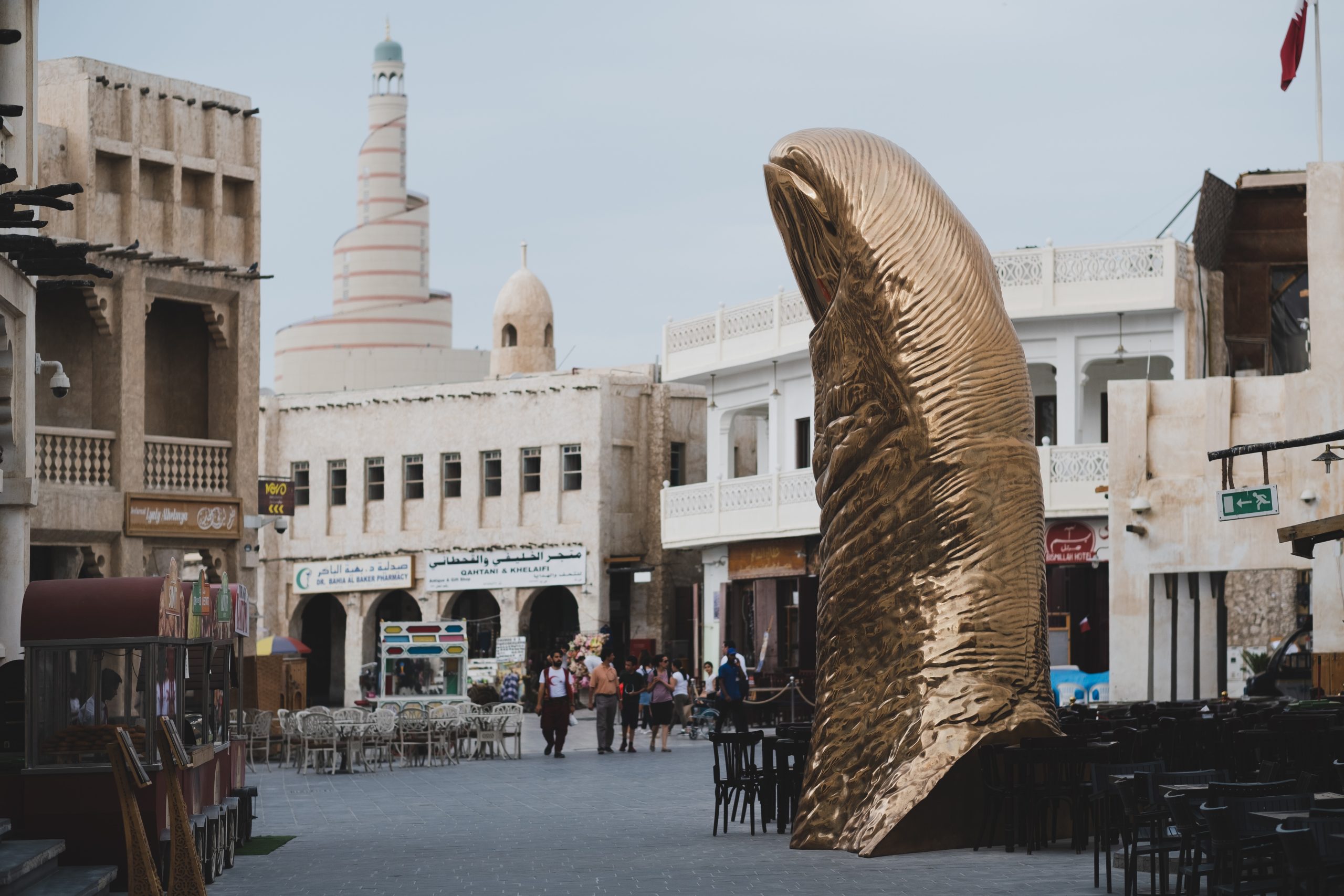
“American badu” Joshua Van Alstine never expected to feel so at home in the Gulf.
But after YouTube made “Abu Muteb” unexpectedly famous in Saudi Arabia, the young comedian appears to have found his niche – and a lucrative career – in this region.
Speaking to Doha News this week, the 25-year-old explained how he went from studying political science in Texas to spending three years working for a Saudi ministry to finally moving to Doha, where he hopes to remain until “old age.”
Ambassador
Van Alstine is blond-haired, green-eyed and baby-faced American with pale skin. But he’s also a fast-talking, thobe-wearing, Arabic-speaking Muslim who, despite not having any Arab roots, badly wants the world to see the beauty of the culture.

He was born to a Turkish mother and an American father on a US base in Turkey, and said this desire came from spending years traveling with his parents as a “military brat.”
“Ever since I remember, I’ve always liked to mediate between things, having grown up in a multicultural family. I’ve always loved showing a person from a certain culture something from someone else’s culture.
Culturally, that’s what I used to do with my parents, because differences in culture can be so vast at times that simple conversation gets misconstrued,” he said.
Humble beginnings
When he was 21 years old, that desire to clear up misunderstandings is what spurred Van Alstine to make his first YouTube video, in which he defended Saudi Arabia.

The post was in response to a clip by vlogger Corissa Chantelle, consisting of rambling and often stereotypical proclamations about why she loved Saudi Arabia.
For Van Alstine, the vlogger’s apparent ignorance of what constituted true Saudi Arabian culture was off-putting, and he was motivated to respond.
“If I told you that I had this…really deep vision (as to why) I created my videos, I’d be lying to you,” he told Doha News. “I’d always been a mediator, so that played a big role.”
He continued:
“And then, there was this girl (who) appreciated Saudi Arabia for all the wrong reasons, like soccer and card games. I had been watching her videos for a while, and I had friends who were Saudi Arabian, and I was like ‘this girl, what does she really like about the society? The society goes against everything single thing that she thinks she likes about the society,’” he said.
Van Alstine’s initial video, which was narrated in fluent Arabic that he had picked up from his mother and Arab friends, didn’t garner much response.
But a second video in which Van Alstine challenged Chantelle to like a list of things that he felt encapsulated the essence of Saudi Arabian culture quickly gained traction in the kingdom.
Though the production quality was low – he filmed the clip in the basement of his house – the video has since racked up close to 1.2 million views.
Following on that success, Van Alstine borrowed money from his parents to buy basic video equipment – lights, a green screen, and a camera – and set about making more videos.
A year later, Van Alstine produced a clip of much higher quality, focusing on non-verbal communication among Saudis.
The video is his most watched to date, amassing close to 2.5 million views, and propelled the small town then-22-year-old to overnight stardom.
Though his clips aren’t as popular in the US, they went viral in Saudi Arabia. After making the rounds on various social media platforms, the videos caught the attention of certain influential Saudis, who invited Van Alstine via Facebook to visit the kingdom in 2012.
“That was when my life changed,” he said.
Big move
Though the move to Saudi Arabia was sudden, Van Alstine said it took little to acclimatize to his new environment.
“I grabbed a plane and went to live there for about four months, and felt immediately at home,” he said.

During his trip, Van Alstine was offered to accompany a royal delegation to Mecca, meet the now King Salman Bin Abdulaziz, and make a lasting impression on the Saudi people.
Back in the US a few months later, Van Alstine received a job offer, via Twitter, from the then-Saudi Ministry of Higher Education. Without hesitation he accepted, packing a bag, boarding a flight and arriving at his new home.
“I think I was the only person working in the Ministry of Higher Education without a degree in any form of higher education,” he said, jokingly.
His role, as a sort of liaison and advisor, coupled with his rising fame in the region, saw him travel to Kuwait, Korea, and Bosnia, on various jobs.
Van Alstine was also cast in a 15-episode TV show called WiFi 2.0, where perhaps self-deprecatingly, he played an American who had no idea what Arab culture was about, but then turns out to “out-Arabize” the Arabs.
Qatar opportunity
The idea of settling down in Qatar first occurred to Van Alstine a few years ago, he said:
“It was kind of like this place I had been looking for, that I hadn’t found until that moment. It is a perfect mixture between the local and expat community, and there’s mutual respect.
I really do like this place. Qatar faces the world…it’s looking for the world. Which is what I’m looking for. We both want to be everywhere and yet at one place at the same time.

He continued:
I also like that the relationship between Qatar and my home country is very good. I think I can grow more as a person and a media personality here, and I think I have the right support here,” he said.
Since his move a month ago, Van Alstine has worked with Qatar TV on National Day-related coverage, interviewing expats who visited Darb Al Saai.
The country, he says, feels like home.
“No one’s going to tell me to go back home here. I see myself living here until my old age,” he added.
Being white, American and Muslim
Through his work, Van Alstine said he hopes to inspire Arabs in the US to stand up for their culture.
“The message (of my first video) wasn’t just to the girl. It was to Arabs all over the country, that this was their time to really show somebody someone meaningful (about your country), and all you’re showing them are card games and teaching people how to dance.
You’re not giving people the full potential, just a superficial understanding of what Arab culture truly is,” he said.
Despite rising xenophobia in the US, as well as racism, name-calling, and teasing from his peers as a teenager, Van Alstine still resolutely holds on to his Islamic faith.

“It’s because, from a very young age, my father convinced me that the Muslim identity is just as American as any other identity.
Just because the Muslim identity originated in the Arabian Peninsula does not mean that it is any less American than, say, the Mexican, Indian, German, or Dutch identities that America has historically welcomed,” he said.
For those under fire in the US, he advises trying to “re-educate, not defend.”
“We need to show people what the Middle East is truly about, and not just the extremists that we see in the news. We have to go, as the Prophet Muhammad said, to teach people. That’s it. Just open up a path to dialogue,” he said.
Since becoming an internet sensation, Van Alstine said he has come to appreciate the power of media.
“Words are everything. They can change the world. My hope to change a small piece of it.”
Thoughts?







